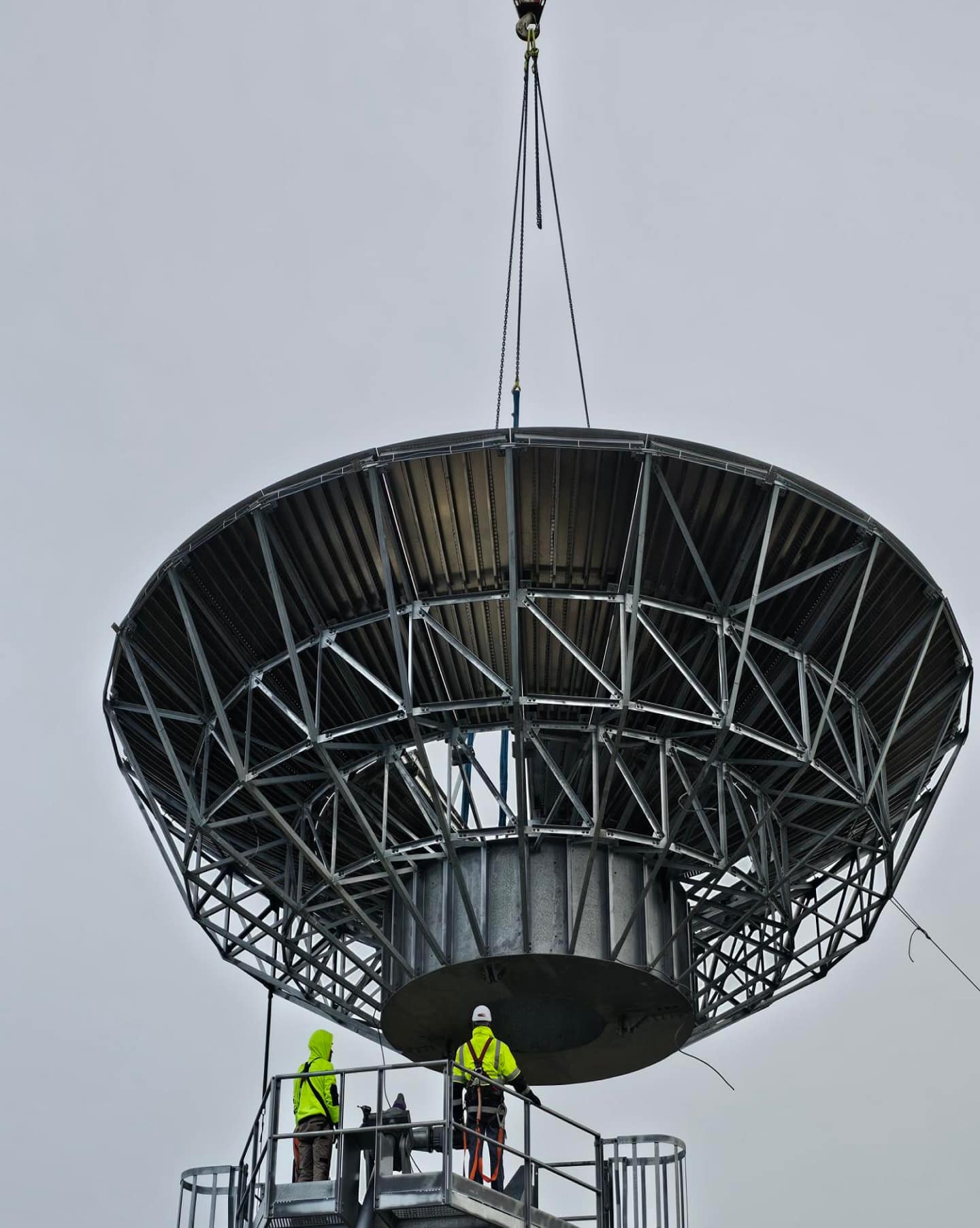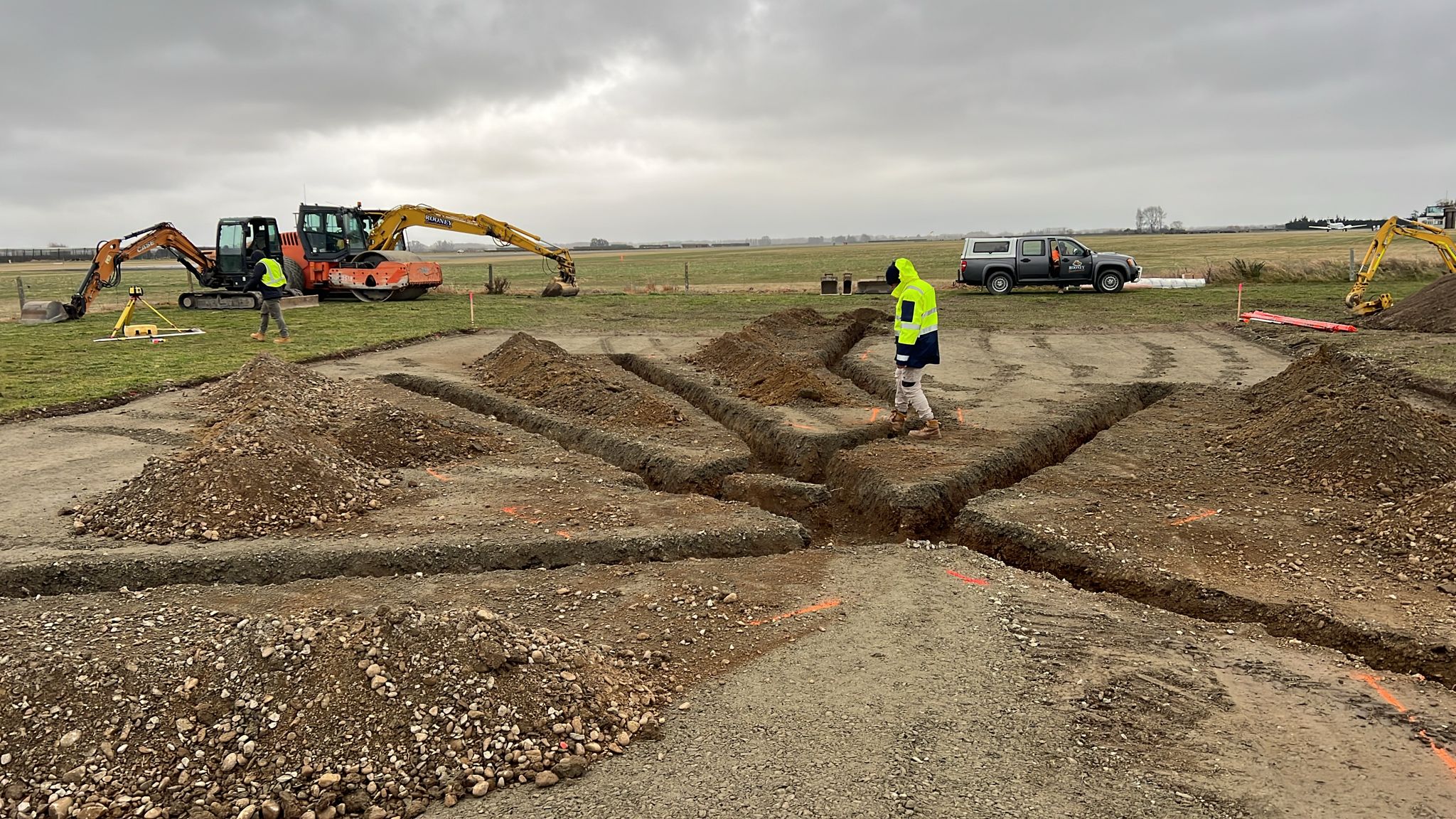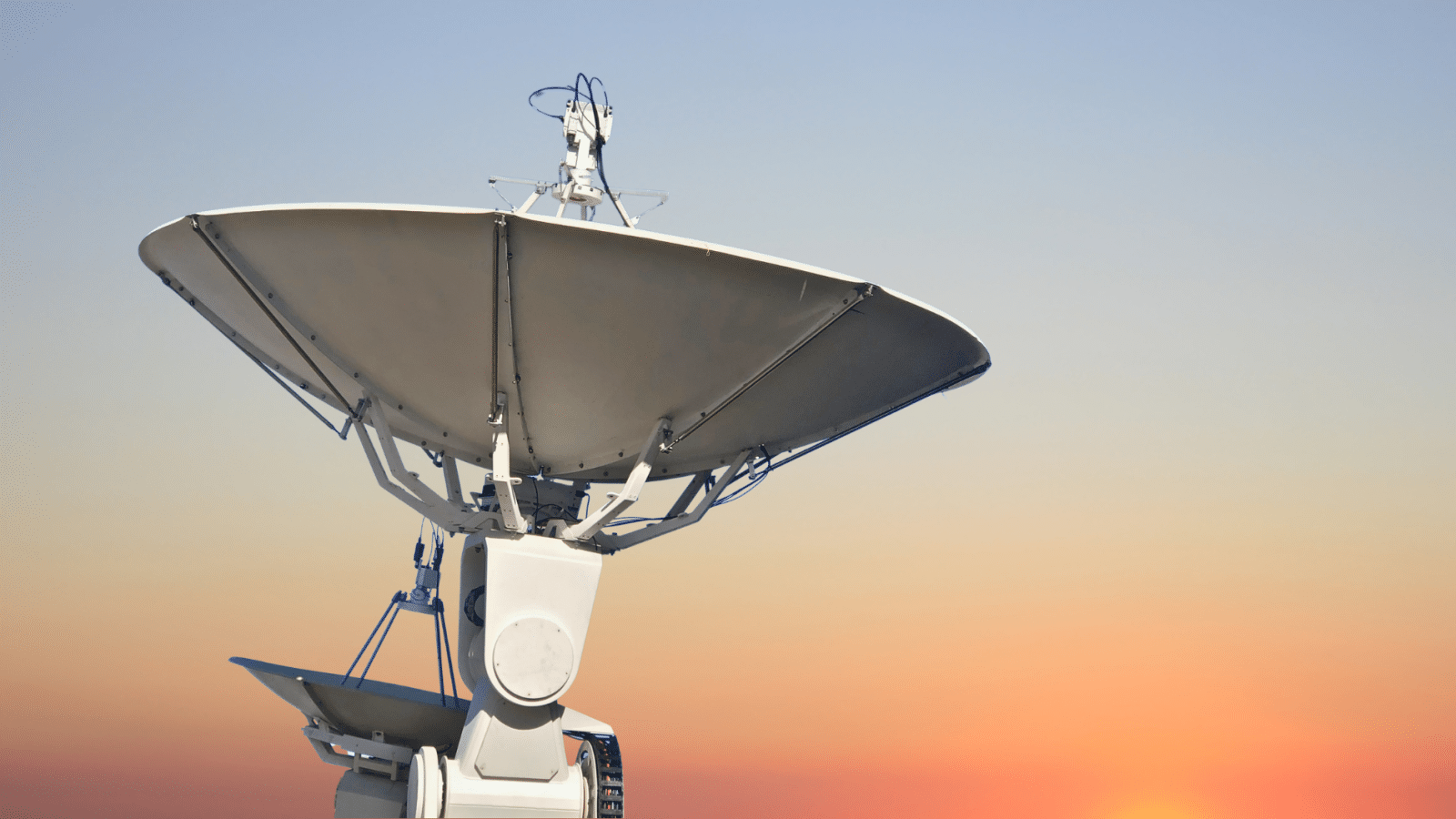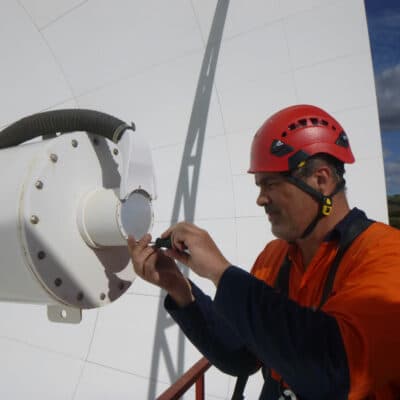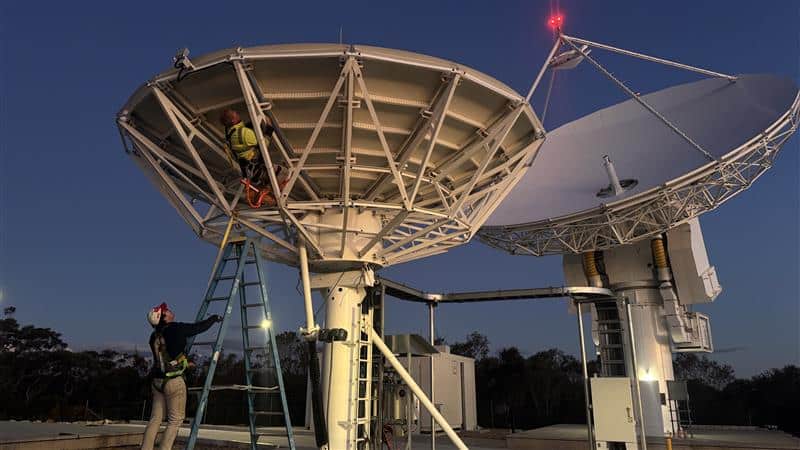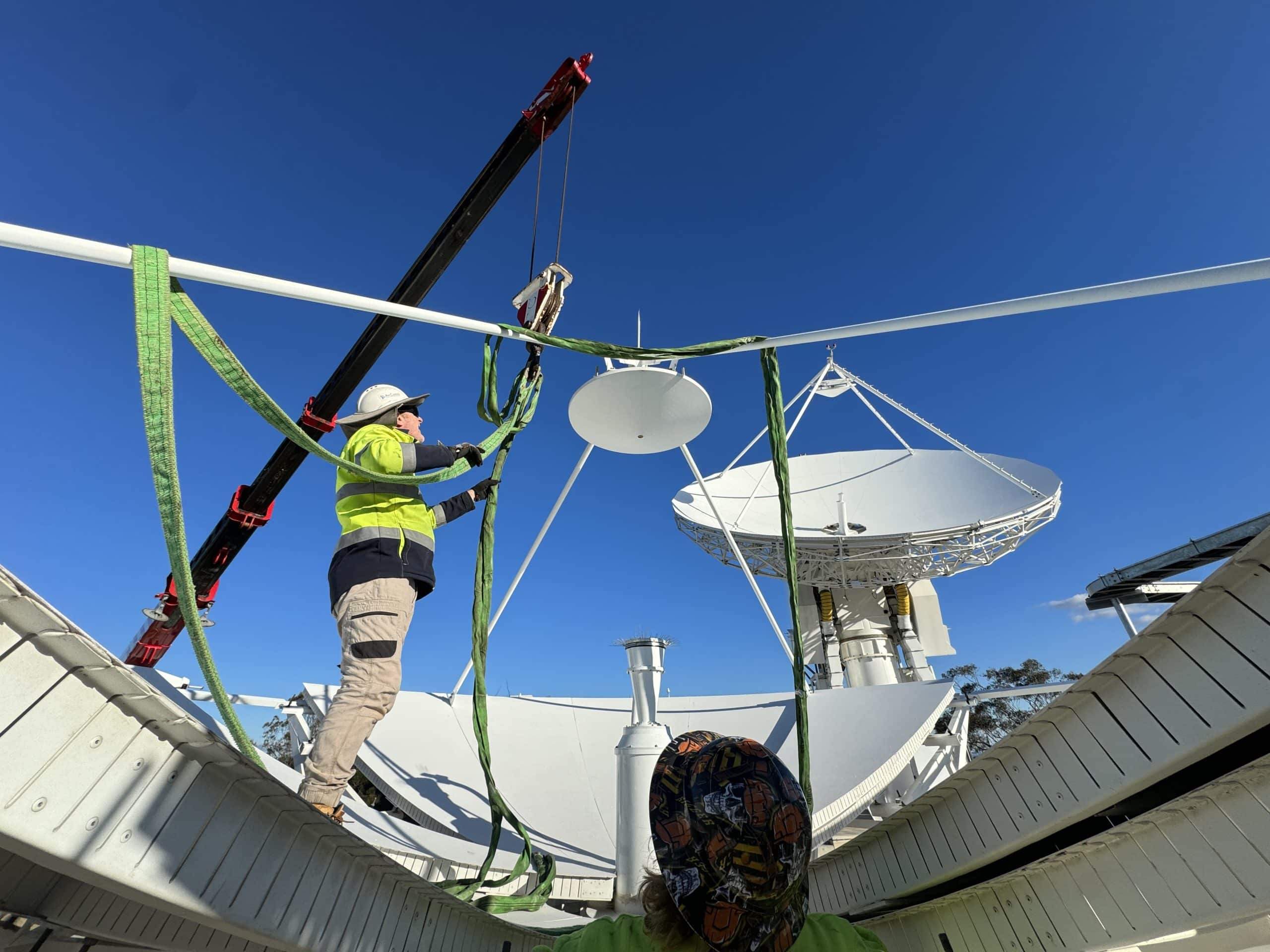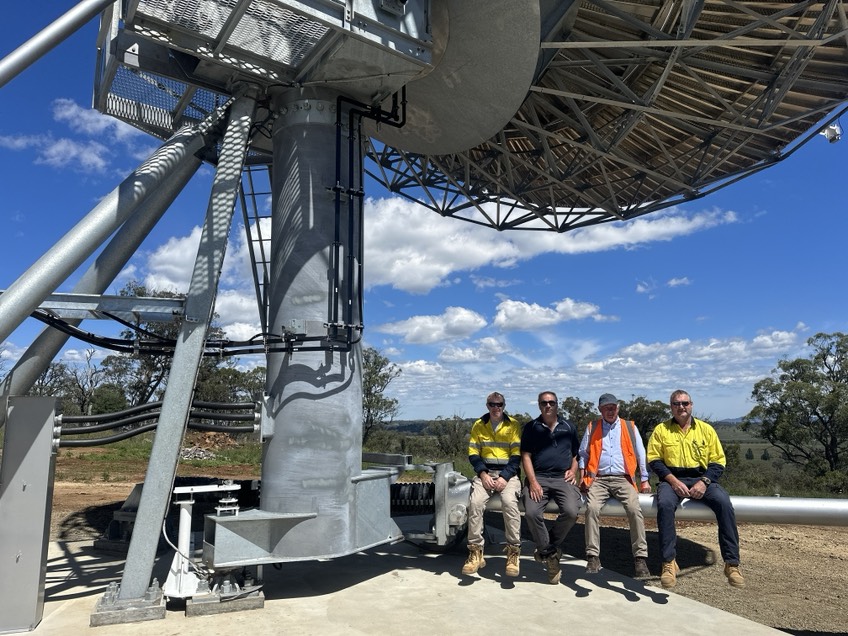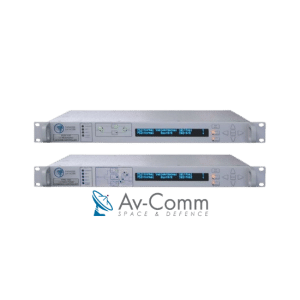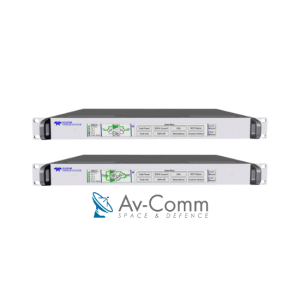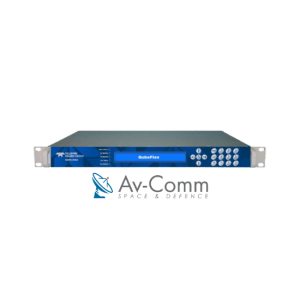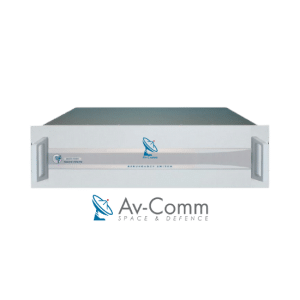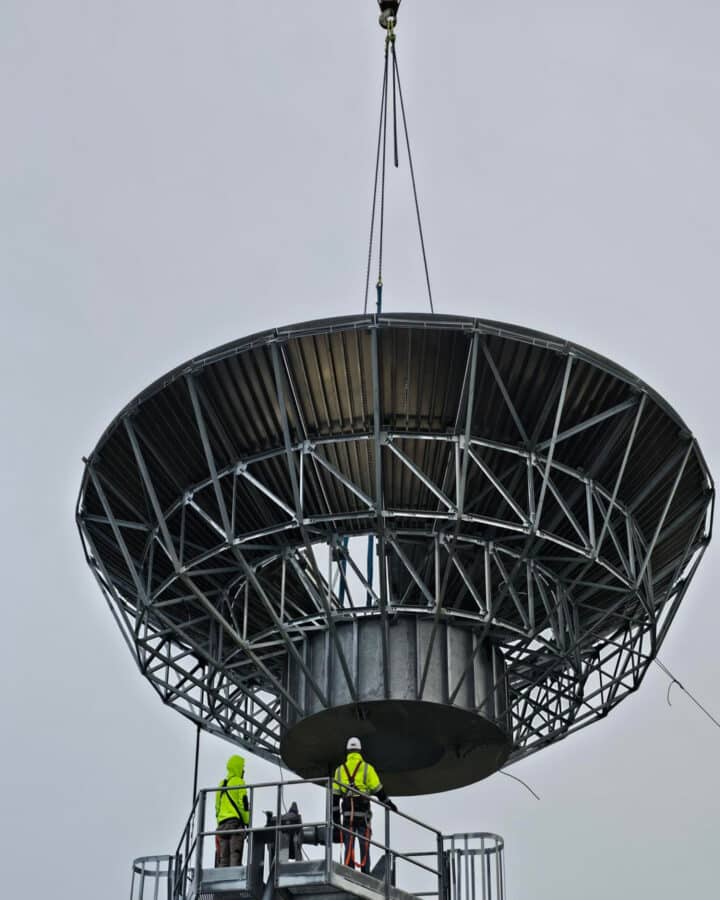Teledyne GaAs PowerMAX Indoor Modular N+1 Phase Combined SSPA System
The PowerMAX system maintains complete parallel redundancy down to the embedded control level. Therefore, the loss of an entire HPA chassis will not interrupt remote communications with the system.
Description
Description
System Operation
The PowerMAX system maintains complete parallel redundancy down to the embedded control level. Therefore, the loss of an entire HPA chassis will not interrupt remote communications with the system. Remote communications can be either RS-485 or Ethernet. The system will automatically correct its gain level in the event of one or more HPA chassis failures.
The sophisticated system monitors, and control allows the system to be locally or remotely operated as if it were a “single” chassis amplifier. The system control maintains a hierarchical management that allows the operator to interface to a single chassis of the multi-module array.
Another feature unique to Paradise Datacom’s PowerMAX is the introduction of “true rms” output power measurement. Unlike other amplifier systems that utilise diode detection schemes, the PowerMAX reports the true rms output power of the system independent of the number of carriers and modulation schemes.
Proprietary waveguide combining techniques are employed so that maximum power combining efficiency is optimised within the operating frequency band.
Teledyne GaAs PowerMAX Indoor Modular N+1 Phase Combined SSPA System Features
SSPA Chassis Population Options
The PowerMAX system is available in a variety of system module configurations and output power levels. The system is based on Paradise Datacom’s 3RU chassis with 100% hot swappable active assemblies. The units can be configured with a wide variety of SSPA frequency bands and power levels, and can be fitted with the following SSPA modules:
- C Band: 100W, 140W, 200W, 250W, 300W, 400W, 500W and 600W
- X Band: 250W, 350W and 500W
- Ku Band: 50W, 70W, 100W, 125W, 200W and 250W
Hitless Redundancy
For mission critical systems in which no power outage can be tolerated, an eight module PowerMAX system can be operated with only four modules installed. In this way, the additional four modules can be installed without requiring the system to be powered off.
The only disadvantage of operating the eight module PowerMAX system with four modules is the additional 3 dB loss that the four module (half-system) system experiences by going through the final hybrid combiner as shown at right. Therefore, the overall output power is actually 6 dB below what it would be with all eight modules present in the system.
If, however, the module output power is sized such that this reduction in output power can be tolerated, the system is an effective means of scaling the system from four to eight modules and maintaining true hitless operation. The system never has to be powered down and there are no mechanical switches involved that would create an interruption of service.
With parallel system architectures, the amplifier output power capability and gain will change as the number of active modules vary. The PowerMAX system is designed with an Auto-Gain Control mode so that the overall system gain will remain constant in the event of a single module failure. Refer to Technical Data Sheets for detailed 4, 8 and 16 SSPA Module configurations.
System Output Power and Configurations
Because the system power combining is purely passive and no switching is used, there is never an interruption in RF output power. The PowerMAX system is typically used as a “self-redundant” system. The output power is sized such that the loss of (1) RF module’s power will still allow the system to maintain its minimum required output power. This type of system architecture is described as n+1 redundant.
The system can be configured with any number of modules, but best overall efficiency is obtained with the popular binary combinations of 4, 8, or 16 modules. It is very easy to upgrade the PowerMAX system from 4 modules to 8 or 16 modules in the field. It is not necessary to fully populate the system at the time of initial purchase. This provides the user a path to upgrade output power capability as system requirements grow, thus keeping capital investment minimised.
For sizing redundant output power capability use the following guideline to determine the output power of the system with the loss of (1) module.
- 4 Module System – 3 of 4 Modules Operable = 2.5 dB loss in output power capability
- 8 Module System – 7 of 8 Modules Operable = 1.2 dB loss in output power capability
- 16 Module System – 15 of 16 Modules Operable = 0.6 dB loss in output power capability
Let us do your dishes for you
Let our team of field-engineers and technicians find innovative and smart solutions to your communications challenges.
